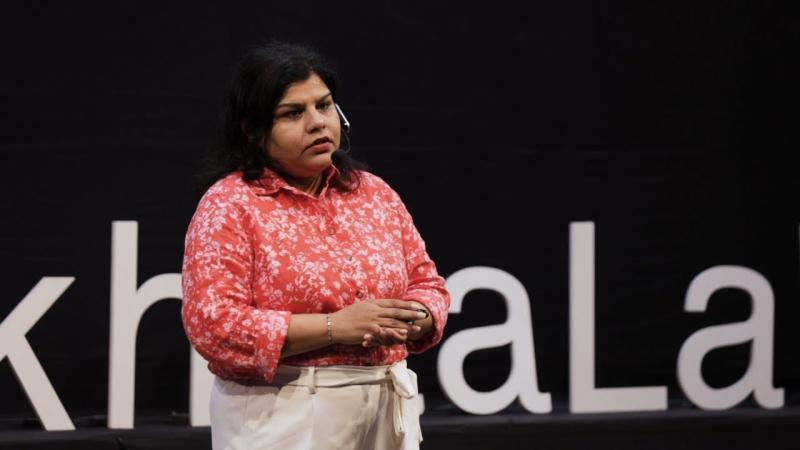Mental Health Awareness: A Conversation With Dr. Shradha Malik

Table of Contents
Understanding the Current State of Mental Health
Mental health statistics paint a concerning picture. The World Health Organization (WHO) reports a significant increase in mental illness prevalence worldwide. Many factors contribute to this alarming trend, including increased stress levels, societal pressures, and the impact of global events. Mental health challenges manifest differently across demographics. For example, young adults frequently experience anxiety and depression, while older adults may face isolation and cognitive decline. Socioeconomic factors also play a significant role, with individuals from disadvantaged backgrounds often facing greater barriers to accessing mental healthcare.
- Mental health statistics: The WHO estimates that one in eight people globally live with a mental disorder.
- Prevalent challenges: Anxiety disorders, depression, and substance abuse are among the most common mental health challenges.
- Stigma's impact: The stigma surrounding mental illness prevents many from seeking help, leading to delayed treatment and worsened outcomes. This stigma often stems from misconceptions and a lack of understanding.
- Common misconceptions: Many believe mental illness is a sign of weakness or that individuals can simply "snap out of it." This is inaccurate; mental health conditions are complex and require professional support.
Dr. Malik's Insights on Effective Mental Health Strategies
Dr. Malik emphasizes a holistic approach to mental wellbeing, focusing on proactive strategies rather than solely reactive interventions. She stresses the importance of incorporating self-care practices into daily routines. This includes regular exercise, a balanced diet, sufficient sleep, and mindfulness techniques.
- Stress management: Dr. Malik recommends techniques like deep breathing exercises, yoga, and meditation to manage stress effectively. She also highlights the benefit of identifying and addressing stress triggers.
- Coping mechanisms: Developing healthy coping mechanisms, such as journaling, spending time in nature, and engaging in hobbies, is crucial for navigating challenging situations.
- Self-care: Prioritizing self-care is not selfish; it's essential for maintaining mental wellbeing. This includes setting boundaries, saying "no" when necessary, and engaging in activities that bring joy.
- Therapy types: Cognitive Behavioral Therapy (CBT) and mindfulness-based therapies are highly effective in treating various mental health conditions. Dr. Malik underscores the importance of finding a therapist with whom one feels comfortable and connected.
- Social support: Strong social connections and supportive relationships are vital for mental health. Nurturing these relationships can significantly improve overall wellbeing.
Recognizing the Signs and Symptoms of Mental Health Issues
Early intervention is key to successful treatment. Recognizing the signs and symptoms of mental health issues is crucial for seeking timely professional help. It's important to remember that these symptoms can vary widely from person to person.
- Common symptoms: Depression can manifest as persistent sadness, loss of interest, changes in appetite, and sleep disturbances. Anxiety symptoms may include excessive worry, nervousness, rapid heartbeat, and difficulty concentrating. Stress may lead to irritability, fatigue, and difficulty sleeping.
- Early intervention: Early intervention is crucial to prevent mental health conditions from worsening. Seeking professional help as soon as you notice concerning symptoms is vital.
- Mental health diagnosis: A mental health professional conducts a thorough assessment, including interviews and potentially psychological tests, to arrive at a diagnosis.
- Stress vs. mental health condition: While everyone experiences stress, a mental health condition involves persistent and overwhelming symptoms that significantly impact daily life.
Resources and Support for Mental Health
Numerous resources are available to provide support and guidance for individuals struggling with their mental health.
- Mental health resources: Websites like the National Institute of Mental Health (NIMH) and the MentalHealth.gov offer valuable information and resources. Many apps provide self-help tools and support.
- Therapy and counseling: Therapy and counseling provide a safe space to explore challenges and develop coping strategies.
- Support groups: Support groups connect individuals facing similar challenges, fostering a sense of community and shared understanding.
- Helplines: Many helplines offer immediate support and crisis intervention. These services are available 24/7. (Please include relevant helplines and websites specific to your region here.)
Conclusion
This conversation with Dr. Shradha Malik has highlighted the critical importance of mental health awareness, emphasizing the prevalence of mental health challenges, effective coping strategies, and the readily available resources for support. Remember, prioritizing your mental wellbeing is not a sign of weakness, but a testament to your self-respect and commitment to a fulfilling life. Early intervention is crucial, and seeking professional help should be viewed as a positive step towards improved mental health. Take the first step towards better mental health awareness today! Reach out to a mental health professional or utilize the resources mentioned above if you need support. Your mental wellbeing matters.

Featured Posts
-
 Medvedev Missili Nucleari E La Crisi Della Russofobia In Europa
May 03, 2025
Medvedev Missili Nucleari E La Crisi Della Russofobia In Europa
May 03, 2025 -
 April 17 2025 Daily Lotto Check The Results
May 03, 2025
April 17 2025 Daily Lotto Check The Results
May 03, 2025 -
 Is Fortnite Offline Checking Server Status And Update 34 21
May 03, 2025
Is Fortnite Offline Checking Server Status And Update 34 21
May 03, 2025 -
 Avrupa Is Birliginin Ekonomik Boyutu Kazan Kazan Senaryolari
May 03, 2025
Avrupa Is Birliginin Ekonomik Boyutu Kazan Kazan Senaryolari
May 03, 2025 -
 South Korean Homes An Architectural Exhibition
May 03, 2025
South Korean Homes An Architectural Exhibition
May 03, 2025
Latest Posts
-
 Tensions A Gaza Macron S Inquiete De La Militarisation Possible De L Aide Humanitaire
May 04, 2025
Tensions A Gaza Macron S Inquiete De La Militarisation Possible De L Aide Humanitaire
May 04, 2025 -
 Reform Uk And The Snp An Unlikely Alliance In The Scottish Elections
May 04, 2025
Reform Uk And The Snp An Unlikely Alliance In The Scottish Elections
May 04, 2025 -
 Israel Et L Aide Humanitaire A Gaza La Mise En Garde Ferme De Macron
May 04, 2025
Israel Et L Aide Humanitaire A Gaza La Mise En Garde Ferme De Macron
May 04, 2025 -
 Nigel Farages Reform Party A Scottish Election Surprise
May 04, 2025
Nigel Farages Reform Party A Scottish Election Surprise
May 04, 2025 -
 Macron Alerte Sur La Militarisation Potentielle De L Aide Humanitaire A Gaza Par Israel
May 04, 2025
Macron Alerte Sur La Militarisation Potentielle De L Aide Humanitaire A Gaza Par Israel
May 04, 2025
